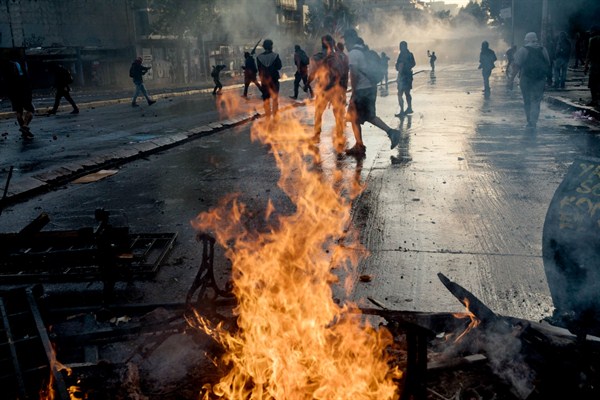In the fall of 1989, the British economist John Williamson prepared a background paper for an upcoming conference at the Peterson Institute of International Economics in Washington, the aim of which was to examine recent shifts in economic policies and attitudes in Latin America. By his own account, his aim with the paper was to identify a list of 10 policies “about whose proper deployment Washington can muster a reasonable degree of consensus.”
Little did he know at the time that his so-called Washington Consensus would come to take on a life of its own. Thirty years later, it remains one of the most controversial ideas in debates about global development, economic policy, and particularly the role that international financial institutions like the World Bank and International Monetary Fund have played across the Global South.
In this week’s interview on Trend Lines, WPR’s Elliot Waldman is joined by Daniel McDowell, an associate professor of political science at the Maxwell School of Citizenship and Public Affairs at Syracuse University, for a conversation about the history of the Washington Consensus and why it continues to spark controversy around the world.
If you like what you hear on Trend Lines and what you’ve read on WPR, you can sign up for our free newsletter to get our uncompromising analysis delivered straight to your inbox. The newsletter offers a free preview article every day of the week, plus three more complimentary articles in our weekly roundup every Friday. Sign up here. Then subscribe.
Listen:
Download: MP3
Subscribe: iTunes | RSS | Spotify
Relevant Articles on WPR:
Chile’s Protests Are a Rejection of the Excesses of Neoliberalism
The Failed Assumptions Behind Central America’s Refugee Crisis
Lagarde Leaves the IMF Better Off, but New Troubles Loom for Her Successor
Trend Lines is produced and edited by Peter Dörrie, a freelance journalist and analyst focusing on security and resource politics in Africa. You can follow him on Twitter at @peterdoerrie.
To send feedback or questions, email us at podcast@worldpoliticsreview.com.

